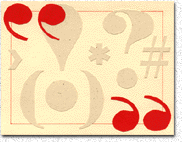 See how many of these word pairs you’ve confused in your writing. These are the subtlest (and hence easiest-to-get-wrong) word pairs from a list of several hundred on the Alpha Dictionary site. See how many of these word pairs you’ve confused in your writing. These are the subtlest (and hence easiest-to-get-wrong) word pairs from a list of several hundred on the Alpha Dictionary site.
22 of the Most Often Confused Words in English:
- Abused vs Misused: Abuse implies improper or immoral; misuse implies inappropriate or mistaken
- Continual vs Continuous: Continual means “repeated, with breaks in between”; continuous means without breaks
- Convince vs Persuade: Convince someone that something is needed/true; persuade someone to do something
- Disinterested vs Uninterested: Disinterested means unbiased; uninterested means doesn’t care
- Each Other vs One Another: Each other for two; one another for more than two
- Enormity vs Enormousness: Enormousness for physically very large things; enormity for metaphorically very large things
- Exceptional vs Extraordinary: Extraordinary is outside the usual range; exceptional is not even comparable to the ordinary range
- Extensive vs Intensive: Extensive means a large quantity; intensive a large proportion or concentration
- Farther vs Further: Farther relates to physical distance; further to an additional amount
- Flaunt vs Flout: Flaunt means to show off; flout to show scorn for
- Founder vs Flounder: Founder is to run aground; flounder to move clumsily
- Literally vs Figuratively: Literally means ‘strictly, word-for-word’ (it’s often misused as a throw-away adverb to add emphasis); figuratively means metaphorically
- Gibe vs Jibe: Gibe means to taunt; jibe to agree
- Hanged vs Hung: People are hanged; clothes and other items hung
- Historic vs Historical: Historic means momentous; historical means related to history
- Holistic vs Wholistic: Wholistic is used by NLPers and others who don’t know how to spell holistic
- Jury-rig vs Jerry-build: Jury-rig means to improvise a temporary substitute; jerry-build is to make something poorly (sorry Jerry)
- Mantel vs Mantle: A mantel is above the fireplace; a mantle is a cloak
- Militate vs Mitigate: Militate means to influence for or against a change; mitigate means to lessen
- Practical vs Practicable: Practical means easy to use; practicable means possible (often ‘impractical’ is used when ‘impracticable’ is meant)
- Sensual vs Sensuous vs Sensory: Sensual means physically or sexually pleasurable; sensuous means appealing to the senses; sensory means pertaining to the senses
- Tortuous vs Torturous: Tortuous means winding or convoluted; torturous pertains to torture
The true meaning of seven much-used (especially on this blog) adjectival superlatives:
- Astronomical means of a very large magnitude
- Enormous suggests a marked excess beyond the norm in size, amount, or degree
- Immense refers to boundless or immeasurable size or extent
- Huge implies greatness of size or capacity
- Gigantic refers to size approaching that of a giant
- Massive refers to large weight or volume
- Tremendous suggests awe-inspiring or fearsome size (= “causing one to tremble”)
- Vast refers to greatness of extent, size, area, or scope (not necessarily desolate)
Some other great sites for word nuts
Online Etymological Dictionary: Font of all knowledge of where words came from.
Document Readability Tests: Performs 5 tests of readability of your writing, and picks out your longest and most tortuous (hopefully not torturous) sentences.
Guide to Punctuation: Yes it’s British but it does entertain the US rules of sequencing quotes, commas and periods.
What blog readers want
Since people keep telling me that the list of what blog readers (and writers) want to see more of is impossible to link to (it’s at the bottom of my right sidebar), here it is reproduced in the main body of my blog.
Blog readers want to see more:
– original research, surveys etc.
– original, well-crafted fiction
– great finds: resources, blogs, essays, artistic works
– news not found anywhere else
– category killers: aggregators that capture the best of many blogs/feeds, so they need not be read individually
– clever, concise political opinion consistent with their own views
– benchmarks, quantitative analysis
– personal stories, experiences, lessons learned
– first-hand accounts
– live reports from events
– insight: leading-edge thinking & novel perspectives
– short educational pieces
– relevant “aha” graphics
– great photos
– useful tools and checklists
– précis, summaries, reviews and other time-savers
– fun stuff: quizzes, self-evaluations, other interactive content
Blog writers want to see more:
– constructive criticism, reaction, feedback
– ‘thank you’ comments, and why readers liked their post
– requests for future posts on specific subjects
– foundation articles: posts that writers can build on, on their own blogs
– reading lists/aggregations of material on specific, leading-edge subjects that writers can use as resource material
– wonderful examples of writing of a particular genre, that they can learn from
– comments that engender lively discussion
– guidance on how to write in the strange world of weblogs
|
 See how many of these word pairs you’ve confused in your writing. These are the subtlest (and hence easiest-to-get-wrong) word pairs from a list of several hundred on the Alpha Dictionary site.
See how many of these word pairs you’ve confused in your writing. These are the subtlest (and hence easiest-to-get-wrong) word pairs from a list of several hundred on the Alpha Dictionary site.




